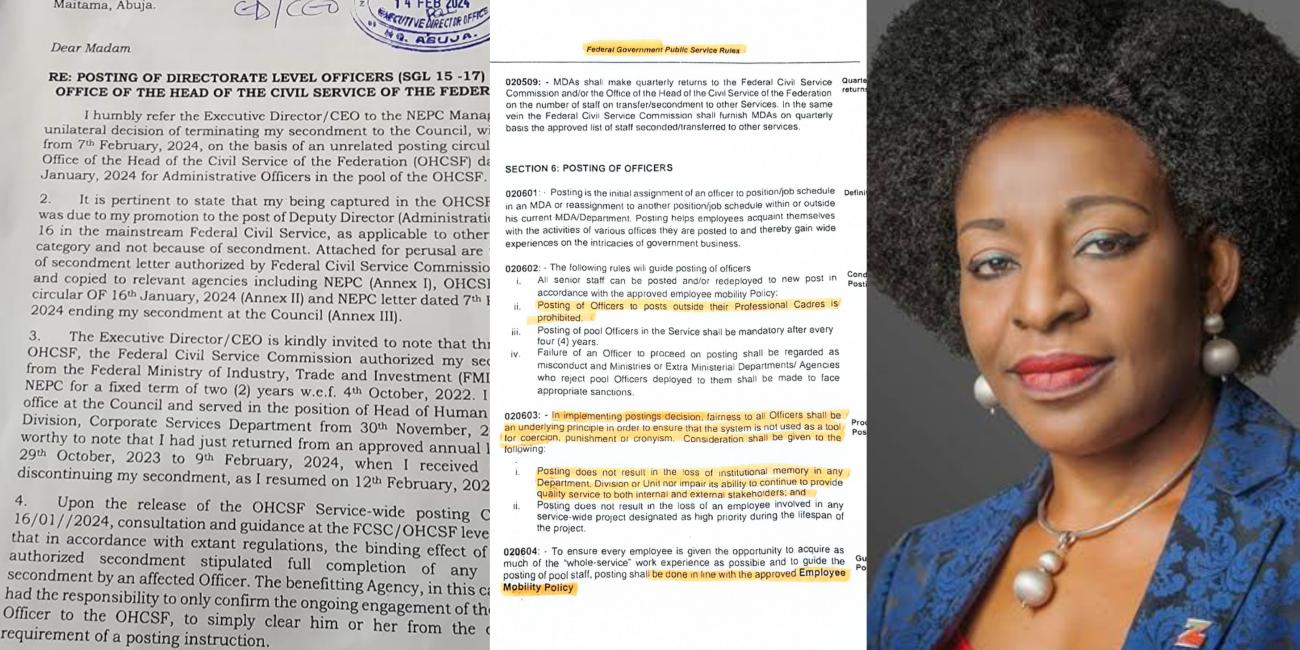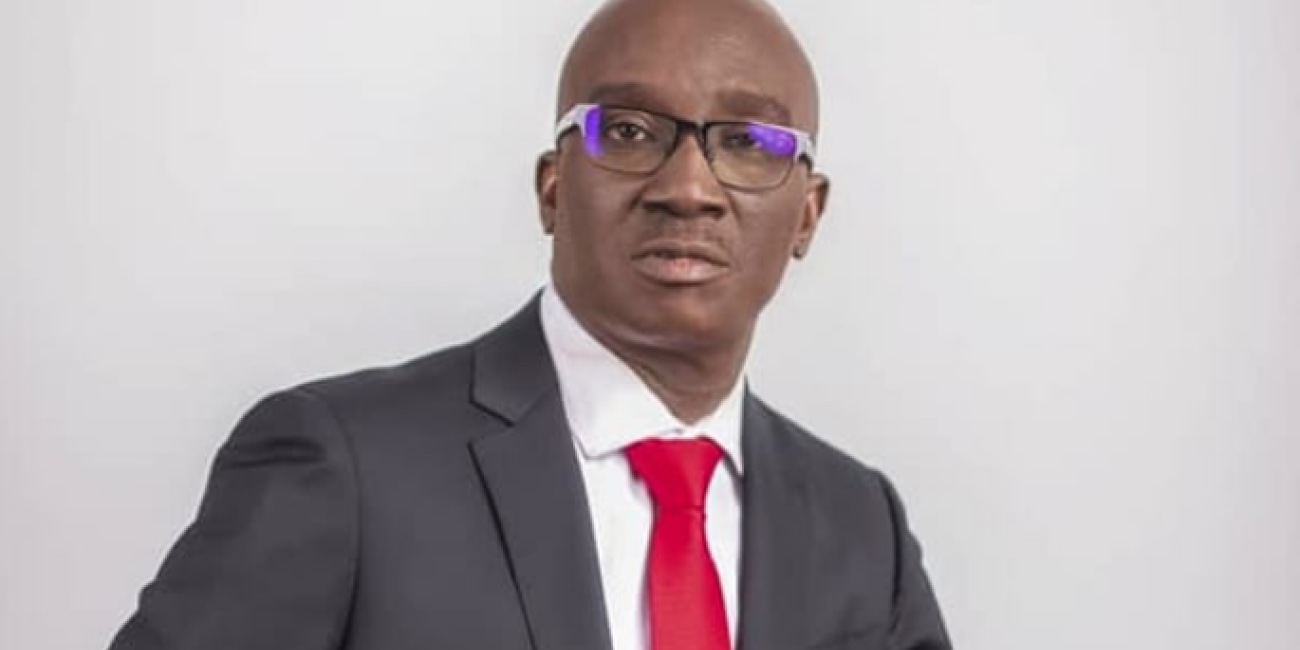Fresh controversy has erupted within the Nigerian Export Promotion Council (NEPC) as several staff members accuse the agency’s Executive Director, Mrs. Nonye Ayeni, of favoritism, abuse of office, and serial violations of the Public Service Rules.
According to internal sources, Mrs. Ayeni is allegedly reshuffling qualified personnel in favor of close allies and individuals from her ethnic group, undermining merit-based postings and institutional integrity.
One high-profile case involves Mr. Rilwanu Salisu Kallamu, a certified procurement officer employed in 2019. Sources claim he was removed from the Procurement Unit to make way for a non-qualified staffer reportedly from the same ethnic background as Ayeni. Despite not being a procurement specialist, the officer identified as Kenneth Ezra was allegedly placed in charge of the unit.
“Mrs. Ayeni and Kenneth are both of Igbo origin. It was a clear ethnic bias,” said a source. “Qualified officers like Rilwan and David Yarkwan were sidelined, even though this goes against the Public Service Rules.”
The rules, specifically PSR 020602 and 020603, prohibit the deployment of officers outside their professional cadre and stress the need to protect institutional memory. However, insiders allege that these regulations have repeatedly been ignored at NEPC under Ayeni’s leadership.
Mr. Kallamu’s forced transfer to Port Harcourt in 2023 as a Trade Promotion Officer a role unrelated to his expertise sparked internal backlash. Despite his appeals, he was later posted to Lokoja,further fueling claims of deliberate victimization.
His colleague, Mr. Yarkwan, also faced a similar fate. Within a year of being posted to Abuja from Jos, he was transferred to Yola under what staff describe as punitive conditions. “It was a coordinated move to clear the way for cronies,” one insider said.
Further allegations suggest that Mrs. Ayeni made unilateral structural changes to NEPC, including increasing the number of directorates from eight to eleven without the required approvals from the Head of Service or the Ministry of Industry, Trade and Investment. A new department, Solid Minerals was reportedly created without proper justification or staffing capacity, housing just six individuals.
“There was no formal directive or ministerial approval for the new department,” one source claimed. “It was a convenient cover to accommodate additional directors.”
Procurement practices at the Council are also said to be in disarray. Contracts are allegedly awarded without proper procurement plans, tender board approvals, or involvement of certified procurement officers, contravening both the Procurement Act and federal circulars. One such circular, issued in June 2017 by the Secretary to the Government of the Federation, explicitly states that only certified procurement officers should handle procurement duties.
Reports indicate that within a year, five certified procurement staff including officers from the Bureau of Public Procurement either resigned or were redeployed from the unit. “They were replaced with unqualified individuals loyal to Ayeni,” a source alleged.
In another incident, Mrs. Mary Jane Idemudia, a Deputy Director seconded from the Office of the Head of Service, had her two-year secondment to NEPC terminated prematurely. She had been working to reform the Human Resources Division but was reportedly removed after Ayeni assumed office. Since then, non-HR personnel have been managing the department, which staff say has worsened internal procedures.
Sources also accuse Ayeni of skipping critical training for federal CEOs at ASCON in 2024, despite receiving full Duty Tour Allowance (DTA). She reportedly attended for only a few days and failed to refund the unspent funds.
Staff morale at NEPC has hit an all-time low, according to insiders. Allegations against Ayeni include public humiliation of staff, emotional outbursts, monopolizing decision-making, refusal to delegate, and using official privileges for personal comfort—such as reserving elevators for private use.
Efforts to reach Mrs. Ayeni for comment were unsuccessful. Though she initially requested a call back, she later failed to respond to follow-up attempts.
The situation at NEPC, if left unaddressed, raises serious concerns about transparency, governance, and adherence to federal civil service standards.




